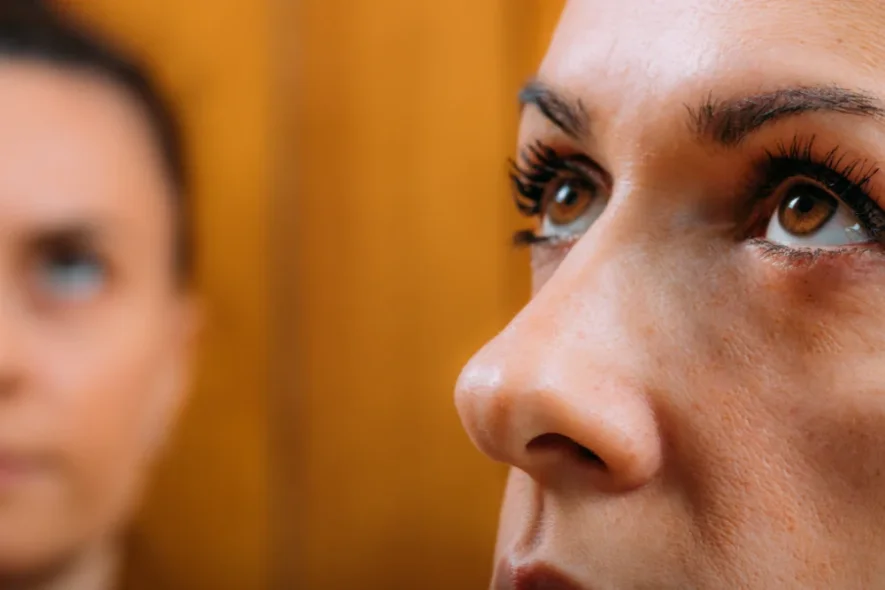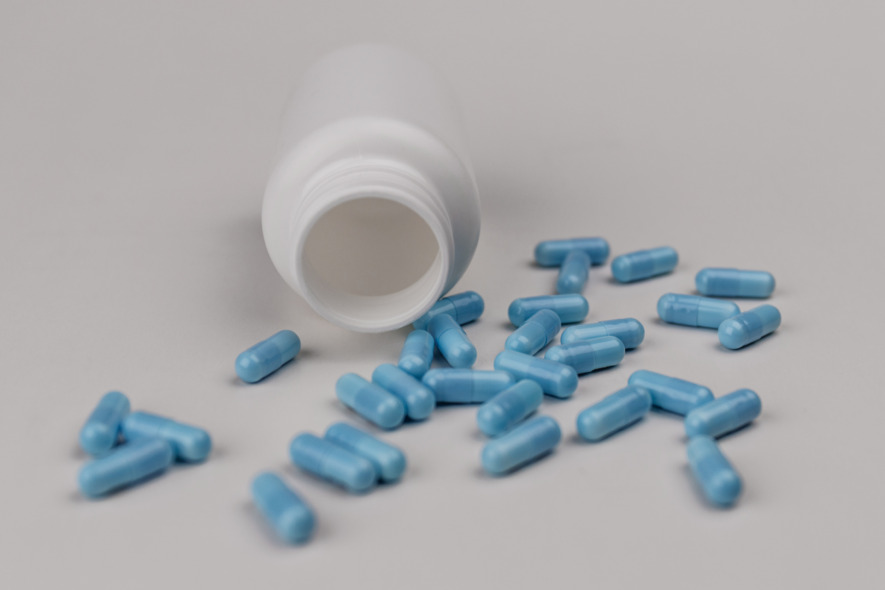Marijuana has become an increasingly popular topic of discussion in recent years, and for good reason.
With research suggesting that marijuana may have medicinal benefits for a variety of conditions, more and more people are turning to this controversial substance as a potential treatment option.
One area of particular interest is the use of marijuana for individuals with autism. While there is still much that we don’t know about this topic, early research suggests that marijuana may hold promise as a potential treatment for autism.
Table of Contents
- ‘Marijuana’ as a Potential Treatment for Autism
- Understanding Marijuana’s Effects
- Potential Benefits of Marijuana for Individuals with Autism
- Reducing Anxiety
- Improving Sleep
- Reducing Aggression and Self-Injurious Behaviors
- Symptoms and conditions that may be improved
- Concerns with Marijuana as a Treatment for Autism
- Lack of regulation and standardization
- Potential side effects
- Proceed with caution
- The Legal Status of Marijuana Use in Treating Autism
- Parental Perspectives on Using Marijuana to Treat Autism Symptoms
- Positive outcomes
- Negative side effects
- Alternative Treatment Options for Autism
- The Need for Larger, More Rigorous Studies
- Summary
- Sources
‘Marijuana’ as a Potential Treatment for Autism
While research on the relationship between marijuana and autism is still in the early stages, there is some evidence to suggest that marijuana may have therapeutic benefits for individuals with autism. For example, a small study found that CBD oil improved symptoms such as anxiety and communication difficulties in children with autism. Additionally, another study showed that THC could help reduce repetitive behaviors in individuals with autism.
Marijuana has the potential to treat several symptoms associated with autism, including:
- Anxiety
- Communication difficulties
- Repetitive behaviors
However, research in this area is still limited, and there are many unanswered questions regarding the potential risks and benefits of using marijuana as a treatment for individuals with autism. Further research is necessary to determine whether marijuana can safely and effectively be used as a treatment option.
Understanding Marijuana’s Effects
Marijuana, also known as cannabis, is a psychoactive drug that comes from the Cannabis sativa plant. It contains over 100 different cannabinoids, including THC and CBD, which are responsible for its psychoactive and medicinal effects.
Marijuana has been used for thousands of years for both recreational and medicinal purposes, and today it is legal for medical use in many parts of the world.
When marijuana is consumed, it produces a range of effects on the body and mind. These effects can vary depending on factors such as the strain of marijuana, method of consumption, and individual factors such as age and body weight. Some common effects of marijuana include:
- Euphoria
- Relaxation
- Altered perception of time and space
- Increased appetite
- Impaired coordination and balance
While marijuana has been shown to have potential therapeutic benefits for a variety of conditions, it is not without risks. Regular use of marijuana can lead to addiction, impaired memory and cognitive function, respiratory problems, and other negative health outcomes.
Potential Benefits of Marijuana for Individuals with Autism
While research in this area is still limited, some studies have suggested that marijuana may have several potential benefits for individuals with autism.
Reducing Anxiety
One study found that CBD oil reduced anxiety and improved behavioral issues in children with autism. Another study showed that THC could help reduce anxiety in individuals with social anxiety disorder, which is a common co-occurring condition in individuals with autism.
Improving Sleep
Sleep disturbances are common in individuals with autism, and some studies have suggested that marijuana may help improve sleep quality. A small study found that CBD oil improved sleep and reduced daytime drowsiness in children with autism.
Reducing Aggression and Self-Injurious Behaviors
Aggression and self-injurious behaviors are common in individuals with autism, and some studies have suggested that marijuana may help reduce these behaviors. A case report described a patient with severe self-injurious behaviors who experienced significant improvement after treatment with dronabinol, a synthetic form of THC.
Marijuana has also shown promise in treating several symptoms associated with autism spectrum disorder (ASD).
Symptoms and conditions that may be improved
According to a 2021 review, cannabis products can reduce the frequency and intensity of symptoms such as:
- hyperactivity
- self-mutilation
- sleep problems
- anxiety
- restlessness
- depression
The review also found that cannabis may improve:
- cognition
- sensitivity of the senses
- attention
- social interaction
- language
Another 2021 review of scientific literature on autism and marijuana in children found that cannabis may help reduce the severity of symptoms involving:
- social communication
- self-injury
- restlessness
- rage attacks
- agitation
- aggressiveness
- irritability
The researcher also found benefits for conditions that autistic children may experience such as:
- anxiety and nervousness
- epilepsy
- sleep problems
- hyperactivity or concentration problems associated with attention deficit hyperactivity disorder (ADHD)
The treatment led to a reduced need for medication in some participants.
Despite these promising findings, most researchers agree that larger scale clinical trials are necessary to draw clear conclusions about the effects of cannabis on ASD. However, the potential benefits of marijuana as a treatment for individuals with autism cannot be ignored.
Concerns with Marijuana as a Treatment for Autism
Despite the potential benefits of marijuana as a treatment for autism, there are also concerns that need to be addressed.
Lack of regulation and standardization
One major concern is the lack of regulation and standardization in the production and distribution of marijuana products. This can lead to variations in potency and quality, which could potentially cause harm or have unpredictable effects on individuals with autism.
Potential side effects
Another concern is the potential side effects of marijuana use. While some studies have shown that CBD oil can improve symptoms of anxiety and communication difficulties in children with autism, other studies have found that THC may exacerbate anxiety symptoms in some individuals.
Proceed with caution
It is important to carefully consider the potential risks and benefits before using marijuana as a treatment option. Furthermore, given the limited research on this topic, it is important to proceed with caution when considering marijuana as a treatment for individuals with autism. More research is needed to determine the long-term effects and safety of using marijuana for this purpose.
The Legal Status of Marijuana Use in Treating Autism
The use of marijuana for medical purposes is a complex and controversial issue, with varying laws and regulations across different countries and states.
In many parts of the world, including some US states, marijuana is legal for medical use. This means that individuals with certain medical conditions can legally obtain and use marijuana products as part of their treatment plan.
However, the legality of using marijuana to treat autism is less clear. While some studies have shown promising results regarding the potential therapeutic benefits of marijuana for individuals with autism, it is not yet an approved treatment option by regulatory agencies such as the FDA.
This means that while it may be legal to use marijuana for medical purposes in some jurisdictions, it may not be legal specifically for treating autism.
Furthermore, even in places where medical marijuana is legal, there may be restrictions on who can access it and how it can be used. For example, some states only allow medical marijuana use for certain conditions or require individuals to have a specific diagnosis or certification from a doctor before they can obtain it.
Even if medical marijuana is legal in your area and you are considering using it to treat autism symptoms, you should always consult with a healthcare professional first. They can help you determine whether this treatment option is appropriate for your individual needs and provide guidance on how to safely and effectively incorporate it into your overall treatment plan.
Parental Perspectives on Using Marijuana to Treat Autism Symptoms
Parents of children with autism are often desperate for treatments that can help alleviate their child’s symptoms. Some parents have turned to marijuana as a potential treatment option, despite the lack of clear evidence regarding its safety and effectiveness.
While research in this area is still limited, it is important to consider the perspectives of parents who have tried using marijuana to treat their child’s autism symptoms.
Positive outcomes
- Some parents have reported positive outcomes, such as improved communication skills and reduced anxiety in their children.
Negative side effects
- However, others have reported negative side effects, including increased aggression and irritability.
Concerns
- Some parents have expressed concerns about the legality and safety of using marijuana as a treatment option.
- The lack of regulation and standardization in the production and distribution of marijuana products has also been a concern for some parents.
Overall, it is clear that more research is needed to determine the safety and effectiveness of using marijuana as a treatment for individuals with autism. In the meantime, it is important for parents to consult with healthcare professionals before considering this treatment option and to carefully weigh the potential risks and benefits before proceeding.
Alternative Treatment Options for Autism
While marijuana may hold promise as a potential treatment for autism, it is not the only alternative treatment option available.
There are several other therapies and interventions that have been studied for their potential benefits in individuals with autism.
Cognitive-behavioral therapy (CBT)
One such therapy is cognitive-behavioral therapy (CBT), which focuses on teaching individuals how to identify and change negative thought patterns and behaviors. CBT has been shown to be effective in reducing anxiety and improving social skills in children with autism.
Occupational therapy (OT)
Another alternative treatment option is occupational therapy (OT), which focuses on developing fine motor skills, sensory integration, and daily living skills. OT has been shown to improve sensory processing difficulties and increase independence in individuals with autism.
Dietary interventions
Additionally, some parents of children with autism have reported success with dietary interventions such as gluten-free or casein-free diets. While there is limited scientific evidence to support the effectiveness of these diets, some studies have suggested that they may improve gastrointestinal symptoms and behavior problems in some children with autism.
It’s important to note that while these alternative treatments may hold promise, more research is needed to determine their safety and effectiveness for individuals with autism.
As always, it’s important to consult with a healthcare professional before starting any new treatment or intervention.
The Need for Larger, More Rigorous Studies
While early research on the use of marijuana as a treatment for autism is promising, there is still much that we don’t know about this topic. Most studies to date have been small and limited in scope, which makes it difficult to draw clear conclusions about the safety and effectiveness of using marijuana as a treatment option.
To better understand the potential benefits and risks of using marijuana as a treatment for autism, larger and more rigorous studies are needed. These studies should be designed to:
- Assess the long-term effects of marijuana use on individuals with autism
- Evaluate different strains and doses of marijuana to determine which are most effective for treating specific symptoms
- Investigate potential side effects and interactions with other medications or treatments
By conducting these types of studies, we can gain a better understanding of how marijuana can be used safely and effectively as a treatment option for individuals with autism. This information will be critical in helping healthcare professionals make informed decisions about whether or not to recommend marijuana as part of an individual’s treatment plan.
Summary
Marijuana has shown promise as a potential treatment for symptoms associated with autism, including anxiety, communication difficulties, and repetitive behaviors. While research in this area is still limited, some studies have suggested that marijuana may also help reduce aggression and self-injurious behaviors and improve sleep quality.
However, there are concerns regarding the lack of regulation and standardization in the production and distribution of marijuana products, as well as potential side effects such as impaired memory and cognitive function. Alternative treatment options such as cognitive-behavioral therapy (CBT), occupational therapy (OT), and dietary interventions should also be considered. To better understand the potential benefits and risks of using marijuana as a treatment for autism, larger and more rigorous studies are needed.
Sources
- Bar-Lev Schleider L., Mechoulam R., Saban N., Meiri G., Novack V. (2019). Real life Experience of Medical Cannabis Treatment in Autism: Analysis of Safety and Efficacy. Scientific Reports, 9(1), 200.
- Barchel D., Stolar O., De-Haan T., Ziv-Baran T., Fuchs D.O., Koren G., Berkovitch M. (2019). Oral Cannabidiol Use in Children With Autism Spectrum Disorder to Treat Related Symptoms and Co-morbidities. Frontiers in Pharmacology, 9, 1521.
- Zou S., Kumar U. (2018). Cannabinoid Receptors and the Endocannabinoid System: Signaling Pathways Involved in Neurological Disorders. Current Neuropharmacology, 16(5), 583-594.
- National Institute on Drug Abuse. (2020). Marijuana Research Report: Is Marijuana Medicine?
- “Cannabis and Autism: A Promising Future or a Dangerous Fad?” by Dr. Bonni Goldstein, Canna-Patient Resource Connection
- “Cannabidiol (CBD) use in Autism Spectrum Disorder: A Review” by Dr. Nicole J. Brown, et al., Research in Autism Spectrum Disorders







































